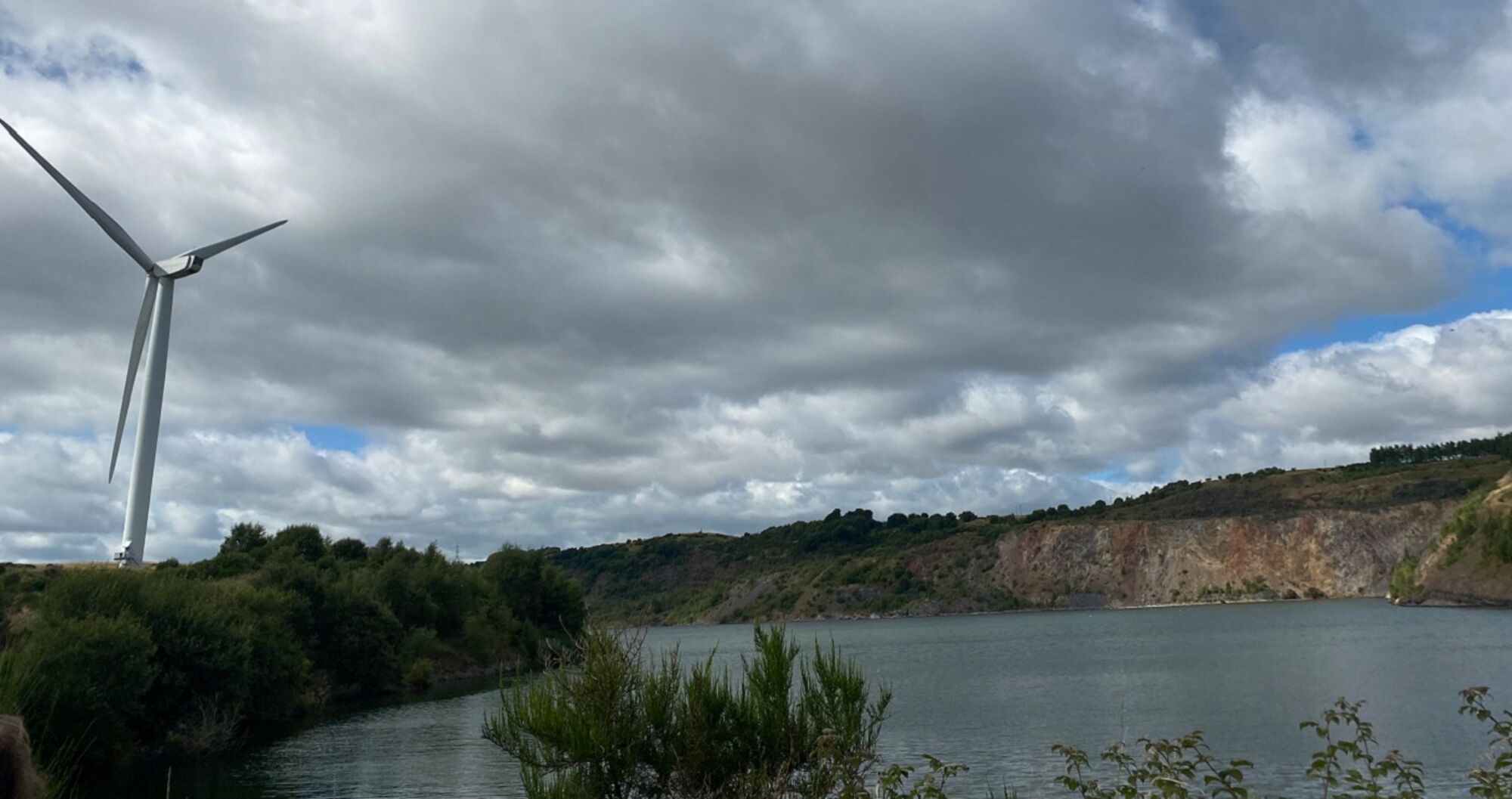
What is a 'just transition'?
What is a 'just transition'?
The concept of a Just Transition has origins in the American labour movement in making arguments that the interests of workers and communities impacted by the movement out of environmentally polluting industries should be protected.
In the UK, particularly but not exclusively in Scotland, the concept has found favour in the context of the transition from fossil fuels to renewables and in light of the collectively understood injustices suffered in coal mining communities during the late twentieth century.
Image: Westfield windfarm, Fife, which stands atop the site of a former opencast coal mine (Ewan Gibbs, 2021).
"The story of how Scotland lost much of its heavy industry through the 70s and 80s is well known and an example of how not to manage structural change. There was little in the way of a “just transition” for communities and families reliant on coal mining as pit closures swept the country. Decades later the impacts of this can still be felt."
Scottish Government, Just Transition Commission: A National Mission for a Fairer, Greener Scotland (2021)
Policy voices
Mike MacDonald, Prospect negotiator for coal-fired power stations and formerly an official with the British Association of Colliery Managers. Interviewed in 2022.
"There was no managed decline Ewan, interestingly from a Prospect point of view, we’ve backed the just transition because we’ve seen the unjust transition. That’s something that’s very important. The decline of coal just became, post-the strike there was a definite centralisation on both sides."
Lorna Slater, Scottish Green MSP and Minister of Green Skills and Circular Economy. Interviewed in 2020.
"That's what a Just Transition means. It means you plan it, in consultation with the people who are affected. The contrast is the sort of coal mining, the Thatcher era, where you closed down coal mines and devastate entire communities. And that's the problem because that’s the model people have in their minds. And we say, we have to stop fossil fuels. People imagine their children going hungry. They imagine not having an income. And, of course, of course they’d be against that. Anyone would be against losing their livelihood. So there has to be a Just Transition. We cannot convince people that the future is going to be better until we set out what that vision is going to be."
Graeme Roy, former Senior Economic Advisor and Head of First Minister’s Policy Unit. Interviewed in 2020.
"The things like through the ROCs, that’s renewable energy, you know, obligation certificates. The big planning changes that were done. All the stuff about trying to get wave and tidal up and going. So, yeah, that was massive. But again, there’s a criticism of that in that did we do the right thing in focusing upon trying to get renewable output up and electricity output up at the expense of not focusing on industry? And we’ve got, what 75 percent, something like that, of renewable consumption generated, sorry, electricity consumption generated by renewables. But how many jobs have we got that build the kit and stuff like that? And that’s going to be radically different from the North Sea. Like of the jobs, you know, the North Sea built an industry around itself whereas we haven’t done that yet with renewables."
More resources
Just Transition for energy workers
Campaign information from the Prospect trade union.
Image credits
-
Westfield opencast site (now partially flooded) with the turbine from Westfield windfarm (Ewan Gibbs, 2021)
Citation
Cite this resource as: Gibbs, Ewan. What is a 'Just Transitition'?, Energy in History. University of Glasgow, 2022

